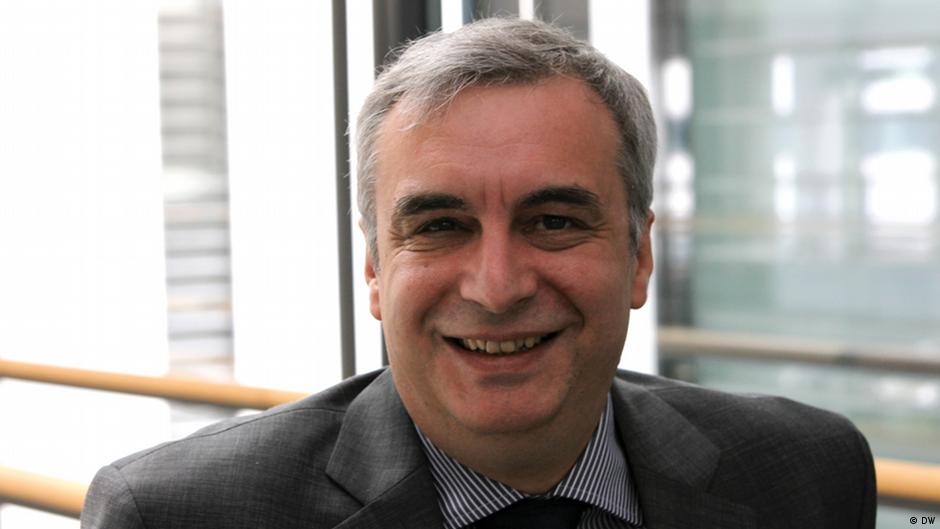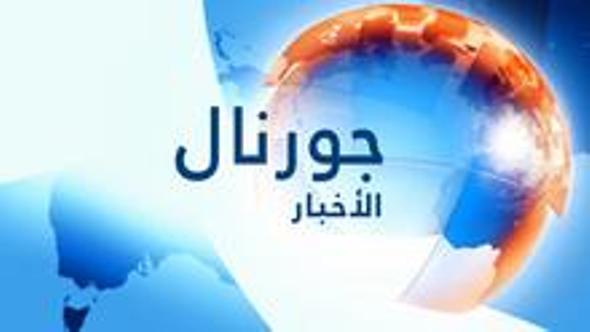Market roundup: October 2014
Middle East
DW partners from across the Arab world met in Tunis, Tunisia, with 17 CEOs and program directors of leading broadcasters and online portals from Egypt, Morocco, Jordan, Iraq, Yemen, Oman, Qatar and Tunisia participating. Representatives from DW’s Middle East/ North Africa distribution met with long-term partners and we able to find opportunities for increased cooperation. The largest Jordanian online news portal, Alwakeel News, is now a DW Facebook partner with 3.3 million users in Jordan and DW will also be providing full text content for highly-popular Egyptian online news portal, Almasry Alyoum. For television, a partial re-broadcasting contract was negotiated with Yemen TV.
Africa
Representatives from DW met with 13 radio and online partners of DW Portuguese for Africa in Nampula, Mozambique. The partners were especially pleased about the interactive rubric, Espaço do Ouvinte, which allows for listener commentary and the educational series, Learning by Ear. Numerous partners expressed interested in rebroadcasting older episodes that highlight political participation to complement the upcoming elections in Mozambique. Partners were also interested in developing journalism training programs with DW Akademie.
DW has three new partners in Kenya. Television Cosmopolitan and Health TV Africa will acquire part of the programming line-up from the English channel, DW. News and magazine radio formats from DW Kiswahili will also be broadcast by Radio Mambo. DW is also increasing radio presence in Tanzania. Links to DW Kiswahili are being integrated into the website of local station partner, Fadeco. Tumbatu Community Radio, which was created in cooperation with UNESCO, is now broadcasting DW’s complete Kiswahili radio program. In Uganda, Smart FM, will be broadcasting the English radio programs Africa Link and news once a day from Monday to Friday.
Asia
DW content in Bengali, Hindi, English and Urdu is now available on the popular Indian news App, NewsHunt. NewsHunt is a cross-platform news aggregator briging together content from over from over 100 news sources in 11 languages spoken in India. By its own estimates, 50 million users have installed the App and it is the most used App in India after WhatsApp, Facebook and YouTube. It can also be used in website format.
DW has a new cable television partner in Vietnam. The cable provider VGN is now carrying DW Asien. VGN provides international television to foreigners living in Vietnam.
In Sahiwal in the Punjab region of Pakistan, around 30,000 households are now being provided with DW via a new Pakistani broadcasting partner, New Geo Cable Network.
Europe
DW’s European distribution have collaborated with Britain’s elite Cambridge University to provide students with a wide-array of DW resources for learning German, available now on the university’s website. A similar arrangement provides students at the University of Nottingham with an online learning platform composed of DW’s language learning resources.
Open a door to your future with DW
DW Akademie is staying ahead of the learning curve and has designed a new trainee program that opens a door of opportunity for a talented group of young and international media professionals. DW’s new international traineeship uses a multilingual and multimedia-oriented approach with televison, radio and online, providing graduates with the skills they need to succeed in today’s global media landscape.
Admission is competitive and if selected, you will be part of a distinctive learning community among international colleagues who will share your passion for media and world-class training in journalism. You will also be exposed to a broad spectrum of disciplines and professional backgrounds while expanding your horizons in a stimulating, internationally diverse atmosphere.
A traineeship with DW is also about being active and putting practice first. Trainees have the resources of Germany’s international broadcaster at their fingertips and will get the opportunity to work with DW’s editorial departments in Bonn and Berlin as well as internships abroad with DW’s foreign bureaus in Moscow, Brussels or Washington D.C.
This year 12 candidates will be accepted into the 18-month program. Think you have what it takes? Applications are now being accepted and the deadline is October 31. You can also put yourself to the test right now and try out the general knowledge quiz used for candidates in 2013.
A real life game of thrones
DW has been online for 20 years and was the first German public broadcaster to venture into the unknown world of the Internet in 1994. The world has indeed changed a lot since then – not necessarily with the level of conflict or the importance of accurate news reporting, but definitely with how people communicate and consume information.
We wanted to commemorate this anniversary by showing how DW has evolved into a leading global online information provider, covering the complexity and diversity of global issues. For the tenth anniversary, DW created a website in the Klingon language from Star Trek. For the twentieth anniversary we once again looked to the world of popular fantasy and we didn’t need to look much farther than the Game of Thrones – the hugely-popular TV series that has captured the imagination of millions with intriguing stories that create an intricately detailed history.
Just like the stories that fill DW’s 30 homepages everyday, the world of Game of Thrones is full of complexity, conflict and intrigue. We applied our high standard of journalism to explaining and clarifying these issues and created a news website that covers the all the important events and personalities of Westeros.
The world of Westeros can be hard to understand all at once– weather it is turbulent financial markets, continual threats of invasion or mysterious celebrities. Using a clever and somewhat satirical approach, DW covers the news of this fantastical world, just like we do with the issues and struggles in the real world.
DW will continue to report the news from extraordinary places and make a complex world easier to understand. There is no limit to where the next ten years could take us.
Market roundup: September 2014
Latin America
DW has a new programming partner in Mexico. Since July, OPMA, has been broadcasting multiple DW programs every week on its flagship educational station, Canal 30. Global 3000, Enlaces, Europa en concierto, En Forma and Claves are among the programs that have been included. The cooperation is the result of successful negotiations with the Director General of OPMA, Armando Carillo Lavat, during this year’s Global Media Forum. Canal 30 is available nationwide in Mexico via major infrastructure providers like SKY and Cablevisión and can be received by an audience of over 80 million. Since it was founded in 2010, OPMA has been involved with DW and to date has acquired more than 500 programming hours from the DW- Transtel portfolio.
Africa
DW has expanded on multiple partnerships in Nigeria. The pay TV provider CONSAT is including DW in its basic programming package. The newly-founded provider is a part of the media group, Continental Broadcasting Service, based in Lagos. The group’s terrestrial broadcaster, TV Continental, is already a DW partner. On the radio, Brila FM, is acquiring sports news from DW Hausa for its new station in Kaduna. Brila’s soccer website also includes an English news feed from DW covering Bundesliga and other sports news. Also on the air are multiple DW magazines in English and Hausa being broadcast by Unity FM in Jos, a private station founded in 2013.
Asia
DW has a new IPTV and cable partner in Jakarta, Indonesia. Mora Quatro Multimedia (MQM) is now carrying DW in all five of its programming packages. MQM provides digital cable service to the Tangerang area and is available via IPTV nationwide in Indonesia. DW is also available to subscribers via a mobile TV app and is estimated to reach 10,000 subscribers by the end of the year.
Video on demand from DW is now available on Networkplay Media, a video portal from India that provides video to over 1,000 online publications.
Public discourse is still a contentious issue in modern Russia
 Guest commentary
Guest commentary
Boris Banchevsky, Head of Distribution for CIS
With the ongoing events in Ukraine and new international pressure building against Moscow, there is an acute need for accurate and objective information both domestically and abroad. As an international broadcaster based in Europe, DW can play an important role, not just through its own independent news coverage but also by supporting Russian media that tries to tell a different story than the state-controlled channels which are pervasive in the Russian media landscape.
There are a few points of light on the horizon for Russian journalism. TV Dozhd is one of the last truly independent media outlets in Russia and they also have recently added DW’s Russian-language news magazine, Geofaktor, to their programming catalogue. With this acquisition, DW can contribute directly to providing independent journalism to Russian audiences while making a statement for independent journalism.
TV Dozhd (“TV Rain” in Russian) first went on the air in 2010, operating in a Russian media landscape that was lacking impartial and independent news coverage. TV Dozhd’s audience grew quickly as they was doing what other channels weren’t– providing unbiased live broadcasts, interviews and independent global news along with critical, alternative coverage of important events and public personalities in Russia.
Despite this success, TV Dozhd nearly met its demise earlier this year after publishing an opinion poll asking if St. Petersburg (former Leningrad) should have been surrendered to the Nazis during World War II, in order to spare the immense loss of life.
Ostensibly for publicizing this question, nearly every major Russian cable and satellite provider dropped TV Dozhd, even after they removed the poll and apologized. As a result, TV Dozhd lost 90 percent of its advertising. According to an article written by Tikhon Dzyadko, the Deputy Editor at TV Dozhd, certain network heads revealed off the record that they were pressured to drop the channel by the Kremlin. TV Dozhd currently broadcasts online and charges a yearly subscription fee.
This proxy attack on independent journalism is no surprise in Russia, where many of those in charge see the purpose of the media as nothing more than a propaganda factory and real, investigative journalism is actively subverted both publically and in secret. The outspoken Russian journalist, Anna Politkovskaya, who was brutally murdered in 2006 for a still unknown client, comes to mind. She wrote in 2004 about her experience covering the Beslan school massacre by Chechen terrorists, “We are hurtling back into a Soviet abyss, into an information vacuum that spells death from our own ignorance. All we have left is the Internet, where information is still freely available.”
Now there is a new conflict being covered, but we also have more resources to tell the truth and publicize independent opinions. Independent media is critical for the development of a free society in Russia and through our active involvement, DW is making a statement that there should always be more than one voice telling the story.












Feedback